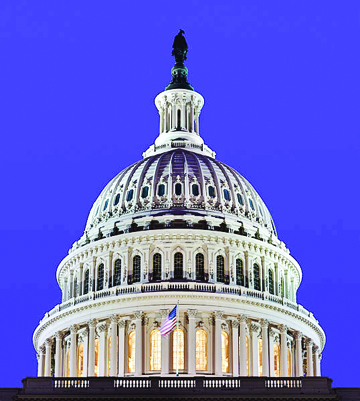For the drug industry, the big news in the “fiscal cliff” deal is that the next big congressional showdown—one that could have big implications for the healthcare industries—has been kicked down the road a couple months.
As part of the bargain over the so-called “cliff,” the economic reckoning that would have happened as the hefty Bush tax cuts abruptly ended, Congress agreed to put off the “Sequester,” a brutal series of mandatory budget cuts meant to backstop more reasoned budgeting that never happened, by two months. The Sequester would slash $318 million from FDA’s 2013 budget of $4.5 billion—a 7% reduction overnight, two months into the year—resulting in layoffs that would dramatically slow down the approvals process and prevent manufacturers from bringing new drugs to market. That could set up a vicious circle by compromising FDA’s ability to collect user fees which account for nearly half of its annual budget, further gumming up the works.
While Medicare would be relatively unscathed—cuts to the program are limited to 2% in the Sequester legislation—and Medicaid and CHIP would be spared entirely, other arms of the federal healthcare bureaucracy would be hard hit. CDC would lose $490 million—4.3% of the Centers’ $11.2 billion 2013 budget—and NIH would lose $2.5 billion, or just over 8% of its $30.7 billion budget.
The clock on that fiscal train wreck has been reset to March 1.
Elsewhere in the deal that passed the House of Representatives last night, physicians won a one year reprieve for the so-called “doc fix,” which ensures that physicians are fully compensated for Medicare patients, despite a shortfall in funding that would otherwise have given them a 26.5% pay cut on those cases. President Obama had pushed a permanent fix for the shortfall as part of a bigger earlier deal that was scuttled when it came up short of necessary support in the House. Hospitals got stuck with the bill for the patch—the legislation cuts their Medicare and Medicaid reimbursements.
“While fixing the physician payment formula is essential, it should not be done by jeopardizing hospitals’ ability to care for seniors and their communities,” said American Hospital Association chief Rich Umbdenstock in a statement.







